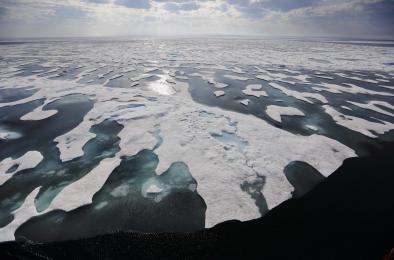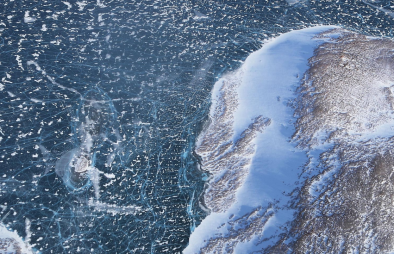Science Source
Effects of Arctic Sea Ice Decline on Weather and Climate: a review
- States the areal extent, concentration and thickness of sea ice in the Arctic Ocean and adjacent seas have strongly decreased during the recent decades, but cold, snow-rich winters have been common over mid-latitude land areas since 2005
- Presents a review on studies addressing the local and remote effects of the sea ice decline on weather and climate
- States it is evident that the reduction of sea ice cover has increased the heat flux from the ocean to atmosphere in autumn and early winter
- States this has locally increased air temperature, moisture, and cloud cover, and reduced the static stability in the lower troposphere
- Finds that several studies based on observations, atmospheric reanalyses, and model experiments suggest that the sea ice decline, together with increased snow cover in Eurasia, favours circulation patterns resembling the negative phase of the North Atlantic Oscillation and Arctic Oscillation
- States the suggested large-scale pressure patterns include a high over Eurasia, which favours cold winters in Europe and northeastern Eurasia
- States a high over the western and a low over the eastern North America have also been suggested, favouring advection of Arctic air masses to North America
- States that mid-latitude winter weather is, however, affected by several other factors, which generate a large inter-annual variability and often mask the effects of sea ice decline
- States the small sample of years with a large sea ice loss makes it difficult to distinguish the effects directly attributable to sea ice conditions
- Finds that several studies suggest that, with advancing global warming, cold winters in mid-latitude continents will no longer be common during the second half of the 21st century
- Finds that recent studies have also suggested causal links between the sea ice decline and summer precipitation in Europe, the Mediterranean, and East Asia
Related Content
Science Source
| Bulletin of the American Meteorological Society
More-Persistent Weak Stratospheric Polar Vortex States Linked to Cold Extremes
Marlene Kretschmer, Dim Coumou, Laurie Agel et al
Headline

Jul 31, 2017 | PBS NewsHour
Arctic journey shows the glaring effects of climate change
Headline

Jul 28, 2017 | Washington Post
How loss of Arctic sea ice further fuels global warming
Headline

Jul 17, 2017 | Bloomberg
How a Melting Arctic Changes Everything: Part I


